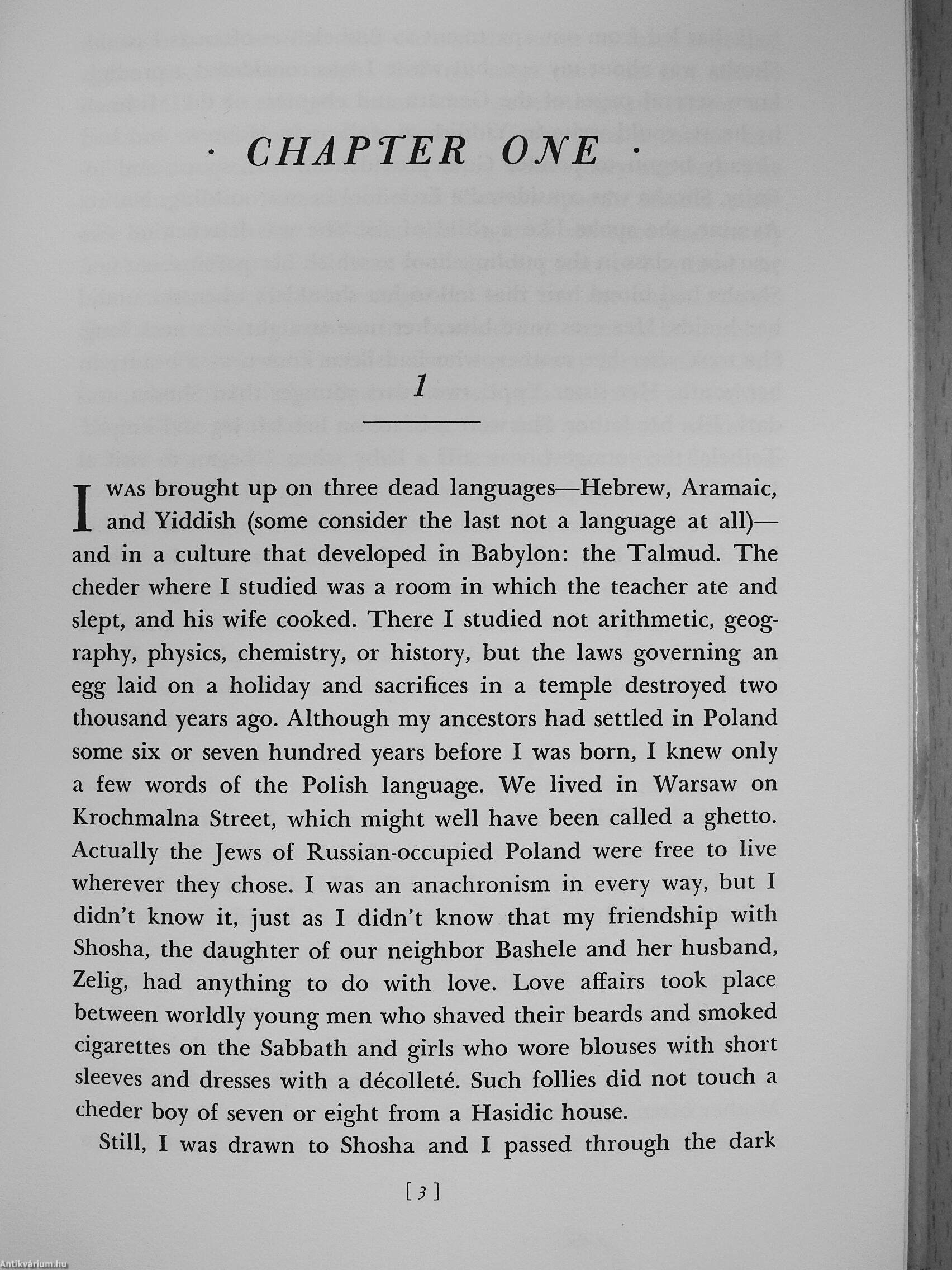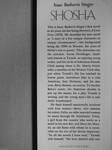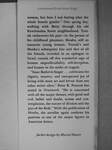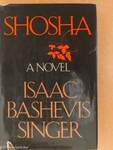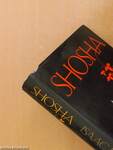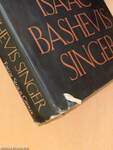1.116.695
kiadvánnyal nyújtjuk Magyarország legnagyobb antikvár könyv-kínálatát
Shosha
A novel
| Kiadó: | Farrar, Straus and Giroux |
|---|---|
| Kiadás helye: | New York |
| Kiadás éve: | |
| Kötés típusa: | Vászon |
| Oldalszám: | 277 oldal |
| Sorozatcím: | |
| Kötetszám: | |
| Nyelv: | Angol |
| Méret: | 21 cm x 14 cm |
| ISBN: | |
naponta értesítjük a beérkező friss
kiadványokról
naponta értesítjük a beérkező friss
kiadványokról
Előszó
TovábbFülszöveg
Isaac Bashevis Singer
SHOSblA
This is Isaac Bashevis Singer's first novel in six years, his last being Enemies, A Love Story (1972). He describes his new novel as "a story of a few unique characters in unique circumstances"—the background being the 1930s in Warsaw, the years of Hitler's rise to power. The characters are the narrator, Aaron Greidinger, familiarly known as Tsutsik, an aspiring young writer, and his circle of bohemian friends. Chief among them is Dr. Morris Feitel-zohn, a member of the Writers' Club who, just when Tsutsik's life has reached its lowest point, introduces him to a rich American, Sam Dreiman, and his mistress, Betty Slonim, an actress. To further Betty's career, the American decides to put up the money for a play Tsutsik is writing, and the young man's life is suddenly transformed.
He finds himself emotionally involved with four women—Betty, who admires his talent; Celia, an older married woman he meets through Dr. Feitelzohn; Tekla, a girl from the... Tovább
Fülszöveg
Isaac Bashevis Singer
SHOSblA
This is Isaac Bashevis Singer's first novel in six years, his last being Enemies, A Love Story (1972). He describes his new novel as "a story of a few unique characters in unique circumstances"—the background being the 1930s in Warsaw, the years of Hitler's rise to power. The characters are the narrator, Aaron Greidinger, familiarly known as Tsutsik, an aspiring young writer, and his circle of bohemian friends. Chief among them is Dr. Morris Feitel-zohn, a member of the Writers' Club who, just when Tsutsik's life has reached its lowest point, introduces him to a rich American, Sam Dreiman, and his mistress, Betty Slonim, an actress. To further Betty's career, the American decides to put up the money for a play Tsutsik is writing, and the young man's life is suddenly transformed.
He finds himself emotionally involved with four women—Betty, who admires his talent; Celia, an older married woman he meets through Dr. Feitelzohn; Tekla, a girl from the country who works as a maid in his new flat; and Dora the Marxist, an old flame with whom he is reconciled on the eve of her Soviet departure. "In all the novels I have read," Tsutsik tells himself, "the hero desired only one
(continued on back flap)
(continued from front flap)
woman, but here I was lusting after the whole female gender." One spring day, walking with Betty through his old Krochmalna Street neighborhood, Tsut-sik rediscovers his past—in the person of his childhood playmate, Shosha, still an innocent young woman. Tsutsik's and Shosha's subsequent fate and that of all the friends, revealed in an epilogue in Israel, rounds off this wonderful saga of human unpredictability, self-deception, and humor in the midst of tragedy.
"Isaac Bashevis Singer celebrates the dignity, mystery, and unexpected joy of living with more art and fervor than any other writer alive," Peter R. Prescott has stated in Newsweek. "He is concerned with all the major themes, with good and evil, belief and doubt, action and contemplation, the nature of illusion and the joys of the flesh." With the publication of Shosha, the novelist again confirms his position as one of the major figures in American letters.
Jacket design by Muriel Nasser Vissza
Témakörök
- Idegennyelv > Idegennyelvű könyvek > Angol > Szépirodalom > Regény, novella, elbeszélés
- Szépirodalom > Regény, novella, elbeszélés > Az író származása szerint > Európa > Lengyelország
- Szépirodalom > Regény, novella, elbeszélés > Tartalom szerint > Társadalmi csoportok > Kisebbségek > Zsidóság
- Szépirodalom > Regény, novella, elbeszélés > Tartalom szerint > Romantikus regények
- Szépirodalom > Regény, novella, elbeszélés > Irodalmi díjas szerzők > Nobel-díjasok




